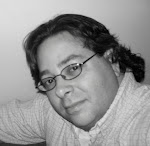I meet a lot of people who, once they find out I write books ask, how in the world do you write a book? It baffles them.
If I am absolutely honest, most days, it baffles me.
I didn't start out writing novels. Not really. At fourteen, I wrote a horror novel about zombies trapping people inside a party house. I wrote that on an electric typewriter. Imagine.
But, at fourteen, I also wrote my first short story. It was about a busboy (working at a party house). It was published in the Cardinal Mooney High School magazine. I have a couple copies stored away, and right now the name of the publication escapes me.
From there I went on to write and sell short stories. Honed my skill as a writer, and slowly built a publishing portfolio.
I grew up with a reading disability. Hated reading. In 7th grade we read The Outsiders, by S.E. Hinton. That turned me around. After that I became an avid reader. I gobbled up books. I finished reading the other novels by Hinton (That Was Then This Is Now, Rumble Fish, Tex, Running Star), and then moved on to Stephen King, and Dean R. Koontz. Robin Cook and John Saul. Robert Parker and James Patterson. David Morrell and Joseph Wambaugh.
I had set a goal at fourteen, that by the time I turned 30 I would be a published novelist.
I worked on several book length stories. Most came in at around 50,000 words.
It was difficult making the transition from short-story writer to novelist. Whereas with a short story, you have between 1,000 and 5,000 words to tell your tale, a novel needs to be over 65,000 words.
When I was 29, I'd completed and submitted the manuscript of Mind Play, to more than 100 publishers and agents. And I'd received back as many rejections. Or so I'd thought.
Feeling a bit discouraged and like a failure, I accepted that I might not be cut out as a writer. I decided to quit. Step back. Re-assess my goals.
In the fall of 1999, I received a call from the publisher at Dry Bones Press. Jim Rankin. He said he'd been in a recent move and just came across my manuscript. Rankin explained that, over Sunday breakfast, he sat down and started reading Mind Play. He did not get up from the table until he'd finished the entire story. If it was still available, he'd like to publish it.
When I finished crying, I told him, yes. He could publish it.
Mind Play was released February 2000. That June, I turned 30.
While I still wrote and sold some short stories, my focus as a writer altered. I concentrated my efforts on novel-length works. In 2001, Tenth House was released by Dry Bones as well. Also in 2001, Third Ring was published by Barclay Books. And in 2002, Johnny Blade. In 2003, I got my first contract for a hardcover novel from Quiet Storm Publishing, and a deal for a Middle Grade reader series. Adverse Impact was a legal thriller. Hardcover. And Jay Walker: The Case of the Missing Action Figure, were both released that year.
(I wrote the Jay Walker book using the pen name, Grant R. Philips).
When I think about it, it has been a long, slow, but exciting career.
My first short story was published in 1984. My first novel in 2000. And here we are in 2009, and I'm still plugging away.
But the funny thing is, since 2003, I have not been able to write a short story.
So when I meet someone who writes short stories, I am baffled, and tend to ask them, how in the world do you write a short story?
It's all relative, isn't it?
Hey--have an awesome day and a wonderful and safe weekend!
God bless,
Thomas Phillips
Subscribe to:
Post Comments (Atom)







No comments:
Post a Comment